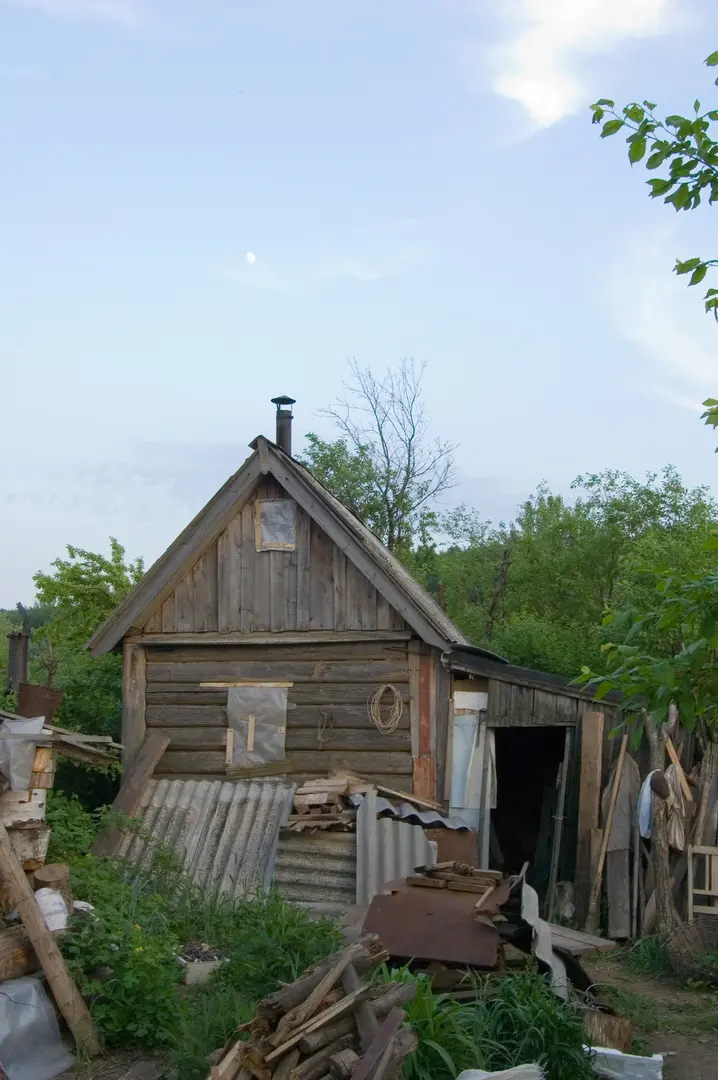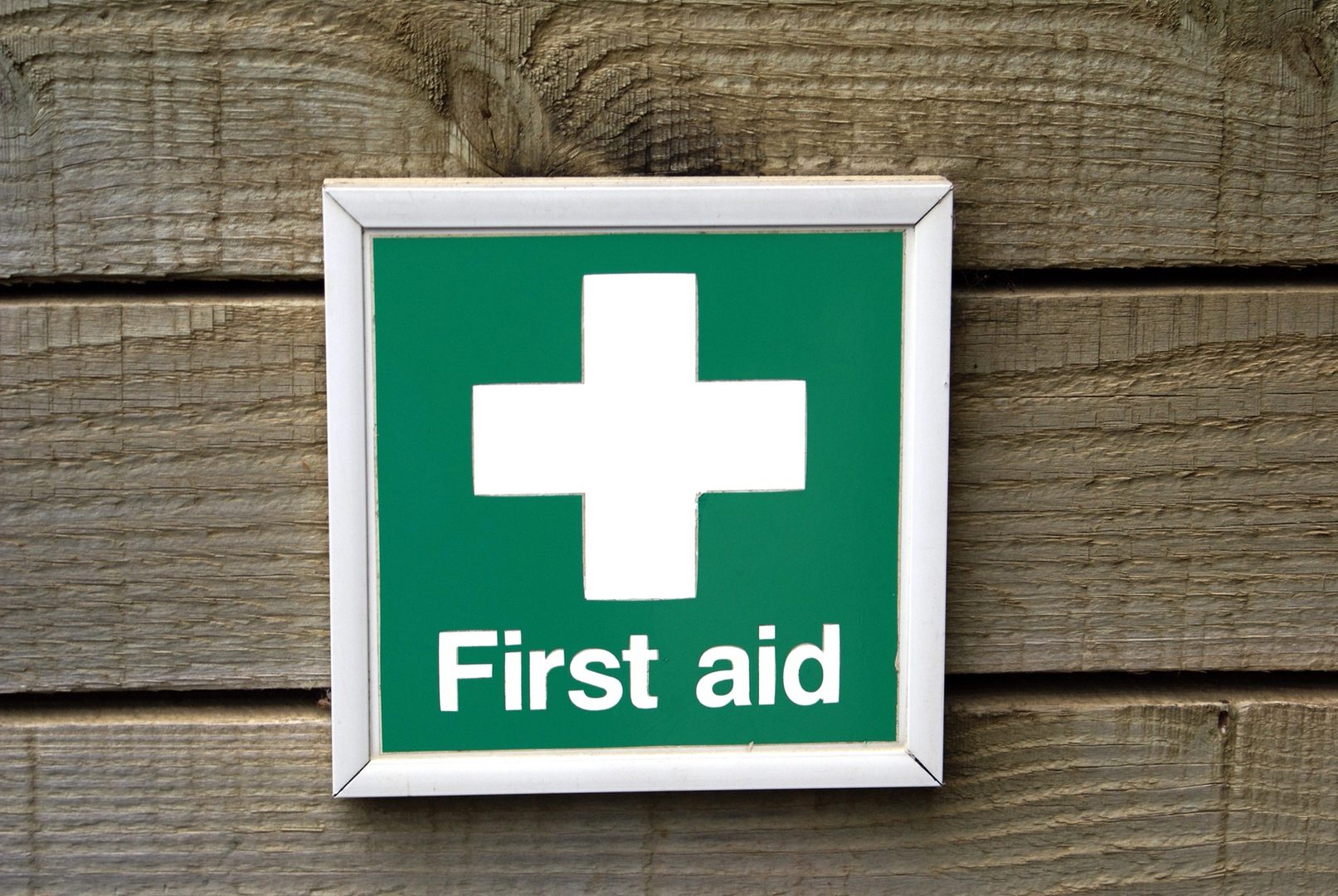In Search of a Decent Home
"For I was hungry and you gave me food, I was thirsty and you gave me drink, a stranger and you welcomed me, naked and you clothed me, ill and you cared for me, in prison and you visited me.' "
Matthew 25:35-36
Do you have a warm place to sleep? Do you have a dry place to sleep? Or even more basic, do you know where you are sleeping tonight?
I hope you are able to answer yes to these questions but there are people who would answer these questions "no." The third Corporal Work of Mercy is to shelter the homeless (cf. The Catechism of the Catholic Church (CCC) 2447). The first step to help is to ensure everyone has a place to call home. Yet, that is not enough. A person might find a home but if it is unsafe, fallen-apart, or unsanitary, it is not enough. If the rent is so high as to leave no money to buy food or utilities it is not enough. Our Declaration of Independence clearly states that everyone has the right to life, liberty, and the pursuit of happiness (cf. "Rights and Responsibilities"). To ensure the right to life and the pursuit of happiness one must have not just any home but a decent home at an affordable price.
In 1975, the U.S. Bishops spoke of those suffering, "from serious housing depravation. They either live in physically inadequate buildings, suffer from severe overcrowding, or spend an excessive proportion of their income for shelter." (The Right To a Decent Home, paragraph 2) not to mention those who have no home (750,000 live annually on the streets or emergency shelters, (DiMarzio, "Letter to the House of Representatives"). Now, almost thirty-five years later there are people still living in the same "depraved" conditions. The problem did not begin in 1975. There were housing problems in 1919 following World War I (U.S. Bishops, Program of Social Reconstruction). In 1931, Pope Pius XI spoke of shameful housing conditions in Quadragesimo Anno (135) and the effect this has on the family. Then, in 1938, the New York State Bishops, "strongly advocated for inclusion of the following provision in the amended New York State Constitution, resulting from the Constitutional Convention in 1938. “The clearance of slum areas and the rehousing of low income residents residing in these areas were made public purposes in aid of which adequate public grants and public credit could be used with appropriate limitations.” (Balinsky, A History of the Providence Housing Development Corporation 1992-2009)
Why doesn't everyone have a decent home? If a person does not have a job and without public assistance, then they have no means to pay for a home of any kind, rendering them homeless. Others may have a job but either do not work enough hours or do not receive a just wage. Remember we are not just concerned with having a home but a decent home. The same is true for those receiving public assistance. They may have enough money for rent but not enough for a home in good condition or else the rent is too high a proportion of their income leaving them nothing for food or utilities.
We need to do something to help these people. Why are we to be concerned with the housing needs of others? Jesus says the second greatest commandment is to love our neighbor. "Effective love of neighbor involves concern for his or her living conditions." (The Right To a Decent Home, paragraph 6).
The first of Seven Themes of Catholic Social Teaching is the dignity of the human person. Each person has a special dignity given by God. This dignity means we have rights. As stated above, rights of the individual are also a founding principle of our country. We have a right to life and thus a right to what is necessary for life. This includes decent housing. The right to the pursuit of happiness means we have a right to a good home. The connections between the Seven Themes and housing crisis is why the USCCB said "we cannot remain silent" in 1975 and this still remains true today (The Right To a Decent Home, page 2).
For those of us able to enjoy this right, we, in turn, have a duty to work so that all might enjoy this right (cf. "Rights and Responsibilities"). Furthermore, governments exist to ensure that everyone has their needs taken care of and to work for the common good . This includes the government working to ensure that the housing needs of its people are met (CCC 2211, Pacem in Terris, 54). This is not something denied by the United States government today or in the past. In 1950 the United States Congress declared the goal of "a decent home in a suitable living environment for every American family (The Right to a Decent Home, paragraph 3 quoted from The Housing Act of 1949 Section 2) to which the U.S. Bishops added that the housing must be within their means and they have the freedom of choice as to where to live (The Right to a Decent Home, paragraph 15).
The government needs to be involved. "The traditional law of supply and demand has not proved adequate to the task of providing decent housing for all our people" (The Right To a Decent Home, paragraph 19). We read, "Since decent housing is a human right, its provision involves a public responsibility. The magnitude of the our housing crisis requires a massive commitment of resources and energy. Government must supplement and regulate the activities of private individuals and institutions in order to achieve our housing goals (The Right To a Decent Home, paragraph 57).
As society developed humans moved from being nomads in tents or caves to people with permanent homes. This lays a more stable foundation for raising a family. Part of this stability is dependent upon housing. In Sollicitduo Rei Socialis, Pope John Paul II described the housing crisis in 1987 as one of the sure signs of underdevelopment (The Right To a Decent Home, paragraph 19). How can a society claim to be fully developed if it does not have decent housing for all its people. I have heard of "homeless roundups" in some of the big cities. When people complain about the rising number of homeless in their neighborhoods, the police hold these 'roundups' where they gather up all the homeless people and force them to relocate to another part of the city. Apparently the people who request the roundups are "ashamed" of seeing the homeless. Perhaps we should be ashamed because the homeless are an indication of how we have failed to fulfill the needs of all people. Likewise, the police forcing the homeless to "move on" accomplishes nothing in the long-term. It simply covers up the problem. We like to hide our problems. It is not just the homeless. Substandard housing tends to be in the areas where the upper class do not go. Otherwise, someone would do something about it.
In 1987, "Bishop DiMarzio, on behalf of the United States Conference of Catholic Bishops, has written to Congress to support the creation of a National Housing Trust Fund as “a genuine opportunity to let the American people know that the housing needs of low-income families are a national priority.” And to “demonstrate how vitally important housing is to the well-being of families and our communities.” (Action Alert: National Affordable Housing Trust Act HR 2895)."
So we give up everything to ensure decent housing for others? It's not that we need to give up everything. Rather, we read in the USCCB document Economic Justice for All, "90. a. The fulfillment of the basic needs of the poor is of the highest priority. Personal decisions, policies of private and public bodies, and power relationships must be all evaluated by their effects on those who lack the minimum necessities of nutrition, housing, education, and health care. In particular, this principle recognizes that meeting fundamental human needs must come before the fulfillment of desires for luxury consumer goods, for profits not conducive to the common good, and for unnecessary military hardware."
This is the fourth of the Seven Themes of Catholic Social Teaching, the option for the poor and the vulnerable; to stand up for those in need, especially those who may not be able to speak for themselves. We must care for the needs of others before our wants. We have a right to private property but this must be balanced against the concept of the "universal destination of goods". The "universal destination of goods" is the concept that all of creation was created for the good of all God's people. We have a right to what we need but it is limited by the needs of others (cf. The Right To a Decent Home, paragraph 11).
The government needs to follow these same principles. Government policy must support the needs of the poor and vulnerable. In housing policy this includes the elderly due to their fixed incomes and limited mobility (The Right To a Decent Home, paragraph 44.) migrant workers (paragraph 45), and the handicap (paragraph 47).
It is for the good of society to ensure decent housing for all. Pope John Paul II said in 1987, "The lack of adequate housing or living conditions contributes to moral decline and the breakdown of family life. It undermines the stability of society." ("Address of his Holiness John Paul II to the Participants in 28th World Congress of the International Union of Local Authorities")
Families can be split up because of the lack of housing. That is good for no one. In 2004, Cardinal Sodano described housing, along with food, education, health care, and freedom as "pillars of peace" ("Letter of His Eminence Card. Angelo Sodano"). If people do not have want they need, then they become desperate and may steal or start wars to get what they need. Is this what you want?
Even if they don't take such action, "We cannot ignore the terrible impact of degrading indecent living conditions on people's perception of themselves and their future (The Right To a Decent Home, paragraph 9).
They may feel they do not matter. But they do matter. They are God's children and deserve all the dignity and respect that goes with being God's children.
What Are We To Do?
The Second Vatican Council wrote in Gaudium Et Spes: The Pastoral Constitution on the Church in the Modern World, "Every social group must take account of the needs and legitimate aspirations of other groups, and even of the general welfare of the entire human family. At the same time, however, there is a growing awareness of the exalted dignity proper to the human person, since he stands above all things, and his rights and duties are universal and inviolable. Therefore, there must be made available to all men everything necessary for leading a life truly human, such as food, clothing, and shelter; the right to choose a state of life freely and to found a family, the right to education, to employment, to a good reputation, to respect, to appropriate information, to activity in accord with the upright norm of one's own conscience, to protection of privacy and rightful freedom. even in matters religious." (26).
The Church does not have the technical expertise and resources to help everyone. There are Catholic housing groups such as Providence Housing in the Diocese of Rochester. This housing groups hire people with the proper expertise for the work. Nonetheless, the resources of the Church are limited (cf. The Right To a Decent Home, paragraph 70-71). The Church continues to advocate as evidenced in the following
By 1979, each of the eight Dioceses in New York State had a low income housing development and management function of some sort. In the fall of 1979, the New York State Council of Catholic Charities Directors created a Housing Committee, focused both on advocacy at the state level, and also sharing information on developing and managing affordable housing. In the 1980’s the Housing Committee played a major role in the establishment of such major initiatives as the Affordable Housing Corporation, the Housing Trust Fund and Rural and Neighborhood Preservation Companies (Balinsky, A History of the Providence Housing Development Corporation 1992-2009),
What is the average parish or individual to do? The bishops wrote, "It is not enough for us to point to the reality of poor housing and recommend that government and other institutions take appropriate action. We must also reflect on our own responsibilities and opportunities for action. We call on individual Catholics, dioceses and parishes, as well as other Catholic organizations, to join us in a new commitment to those who suffer from poor housing." (The Right To a Decent Home, paragraph 70).
The bishops suggest five ways for church involvement in the housing arena; awareness, advocacy, providing services, stewardship, and community-building (The Right To a Decent Home, paragraph 71).
The work we are called to begins with raising awareness. We begin by making sure everyone is aware of the housing situation; that people are homeless or living in substandard housing. Education is also important here to spread the word of our Catholic values that influence how we see the housing situation (The Right To a Decent Home, 72-75).
Next is the work of advocacy. Advocacy is to stand up for those who are in need, especially those who cannot stand up for themselves. A large part of advocacy work continues the education; education that helps others understand why we need to improve the housing crisis. We tend to think of advocacy as something done on a state or national level where many housing policies are made law. However, advocacy begins on the local level. It is at the parish level that we come in contact with the people understanding their needs. From knowing their needs and priorities we then determine where to focus our advocacy efforts. (The Right To a Decent Home, paragraphs 76-81)
Another area for our Catholic involvement is providing services. While the church does not have the resources to help everyone itself, such direct service has a long history in the Church, beginning with Catholic hospitals and now includes all the work accomplishes by such organizations as Catholic Charities and Catholic Relief Services. (The Right To a Decent Home, paragraphs 82-87).
The fourth area for our involvement is stewardship. Here, stewardship is to make good use of our resources; rather than over consume to help others (The Right To a Decent Home, paragraphs 88-89).
The fifth and final area for our involvement is Community Building. The bishops write "The alienation and isolation in our communities are important components of the housing problem" (The Right To a Decent Home, paragraph 90). Our neighborhoods are in decline. Neighborhoods that once were thriving areas of life are now fallen apart and everyone is more concerned with their own wants than the common good of the neighborhood. As we consider how to improve our neighborhoods we must realize
Housing conditions cannot be separated from the surrounding environment. City services, education, community cohesiveness, safe, government responsiveness, and taxation policies are critical factors in the creation and maintenance of decent housing (The Right To a Decent Home, paragraph 27).
How are you called to to help?
For the latest news and policies from the USCCB on housing go to http://www.usccb.org/issues-and-action/human-life-and-dignity/housing-homelessness/
BIBLIOGRAPHY
Articles from Renewal of Faith
- "Rights and Responsibilities"
- "Seven Principles of Catholic Social Teaching"
- "The Corporal Works of Mercy"
- "Social Sin and Structures of Sin, What Are We To Do?"
Other Sources
Balinsky, Jack,, A History of the Providence Housing Development Corporation 1992-2009. 2009. Available online at http://www.jackbalinsky.org/attachments/PHDC_History.pdf.
Catechism of the Catholic Church Second Edition. English translation of the Catechism of the Catholic Church for the United States of America copyright © 1994, United States Catholic Conference, Inc.—Libreria Editrice Vaticana. English translation of the Catechism of the Catholic Church: Modifications from the Editio Typica copyright © 1997, United States Catholic Conference, Inc. Available online at http://www.usccb.org/beliefs-and-teachings/what-we-believe/catechism/catechism-of-the-catholic-church/epub/index.cfm.
DiMarzio, Rev. Nicholas, Chairrman, Domestic Policy Committee, "Letter to the House of Representatives" March 27, 2007. Formally available online at http://www.usccb.org/issues-and-action/human-life-and-dignity/housing-homelessness/upload/McKinney-Vento-2007.pdf.
Pope John Paul II, "Address of his Holiness John Paul II to the Participants in 28th World Congress of the International Union of Local Authorities." September 29, 1987. Available online at (http://www.vatican.va/holy_father/john_paul_ii/speeches/1987/september/documents/hf_jp-ii_spe_19870929_congresso-autorita-locali_en.html).
Pope John Paul II, Sollicitduo Rei Socialis, 1987. Available online at http://www.vatican.va/holy_father/john_paul_ii/encyclicals/documents/hf_jp-ii_enc_30121987_sollicitudo-rei-socialis_en.html.
Pope John XXIII, Pacem in Terris (Peace on Earth). 1963. Available at the Vatican Web Site (www.vatican.va) at http://www.vatican.va/holy_father/john_xxiii/encyclicals/documents/hf_j-xxiii_enc_11041963_pacem_en.html (see paragraphs 1-32).
Pope Pius XI, Quadragesimo Anno, 1931. Available online at http://www.vatican.va/holy_father/pius_xi/encyclicals/documents/hf_p-xi_enc_19310515_quadragesimo-anno_en.html.
Second Vatican Council, Gaudium Et Spes: Pastoral Constitution on the Church in the Modern World, 1965. Available online at http://www.vatican.va/archive/hist_councils/ii_vatican_council/documents/vat-ii_cons_19651207_gaudium-et-spes_en.html.
Sodano, Cardinal Angelo, "Letter of His Eminence Card. Angelo Sodano on the Occasion of the 34th General Assembly of the Orgainization of American States (OAS)," Available online at (http://www.vatican.va/roman_curia/secretariat_state/2004/documents/rc_seg-st_20040607_sodano-oas_en.html).
U.S. Bishops, National Catholic War Council, Program of Social Reconstruction, February 12, 1919. Available online at http://cctwincities.org/document.doc?id=87.
USCC, The Right To a Decent Home: A Pastoral Response to the Crisis in Housing, November 20, 1975. Available online at http://www.usccb.org/issues-and-action/human-life-and-dignity/housing-homelessness/upload/decent-home-1975.pdf.
USCCB, Action Alert: National Affordable Housing Trust Act HR 2895). 2007. Formerly Available online at http://old.usccb.org/sdwp/Housing Trust Fund ALERT 10-4.pdf.
USCCB, Economic Justice for All:Pastoral Letter on Catholic Social Teaching and the U.S.Economy. 1986. Available online at http://www.usccb.org/upload/economic_justice_for_all.pdf.





